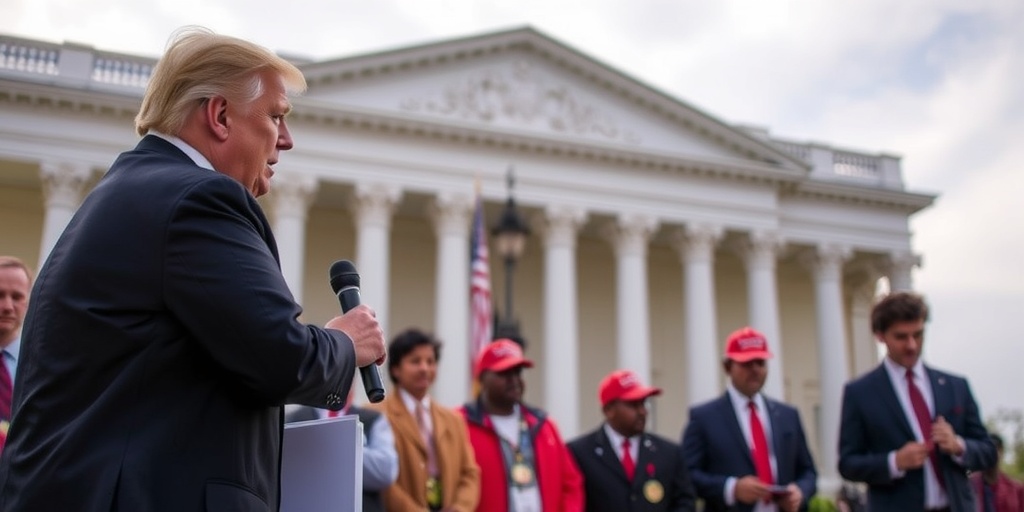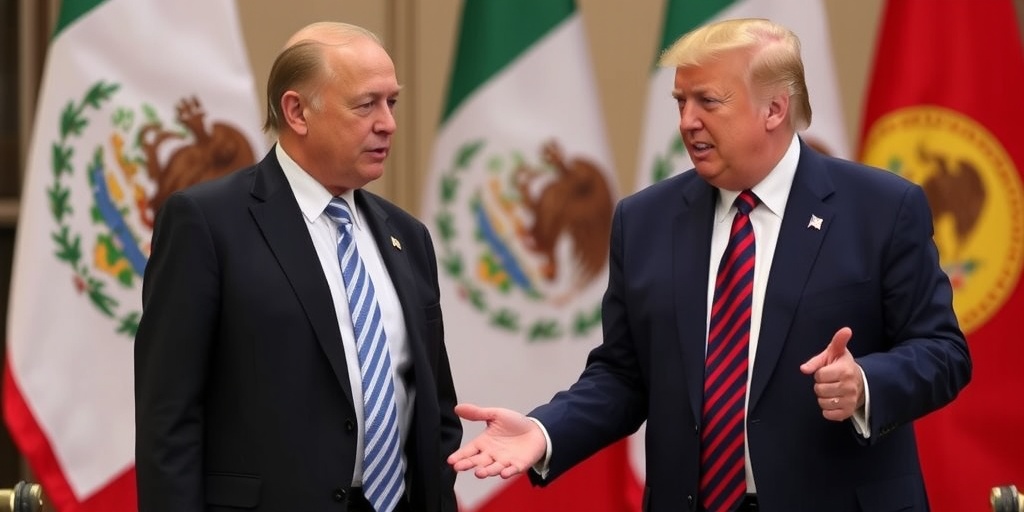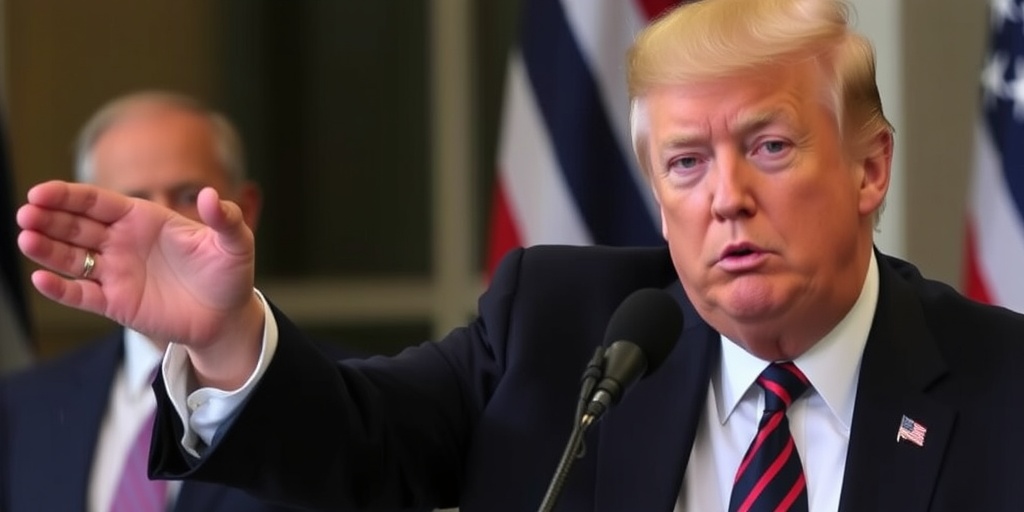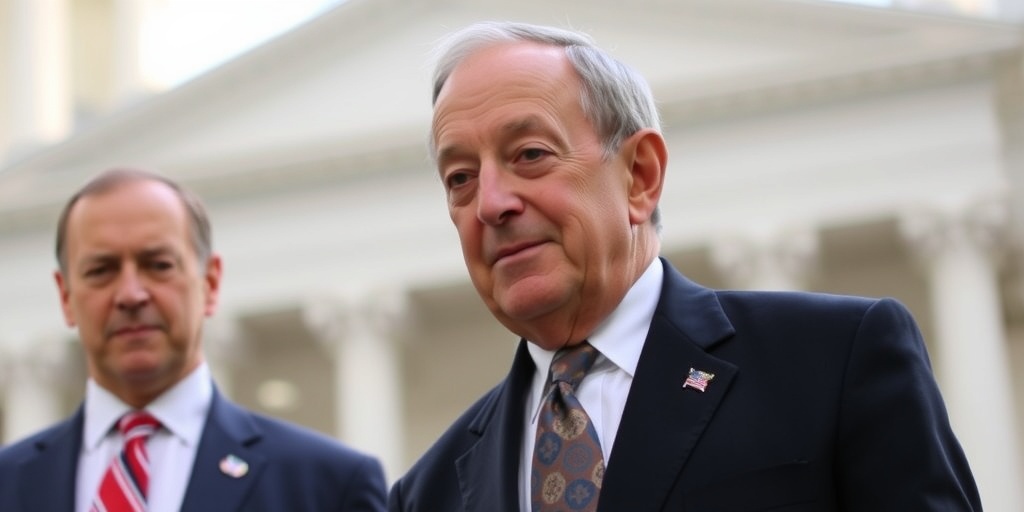Now Reading: Tariff Turmoil Threatens Economic Stability
-
01
Tariff Turmoil Threatens Economic Stability
Tariff Turmoil Threatens Economic Stability
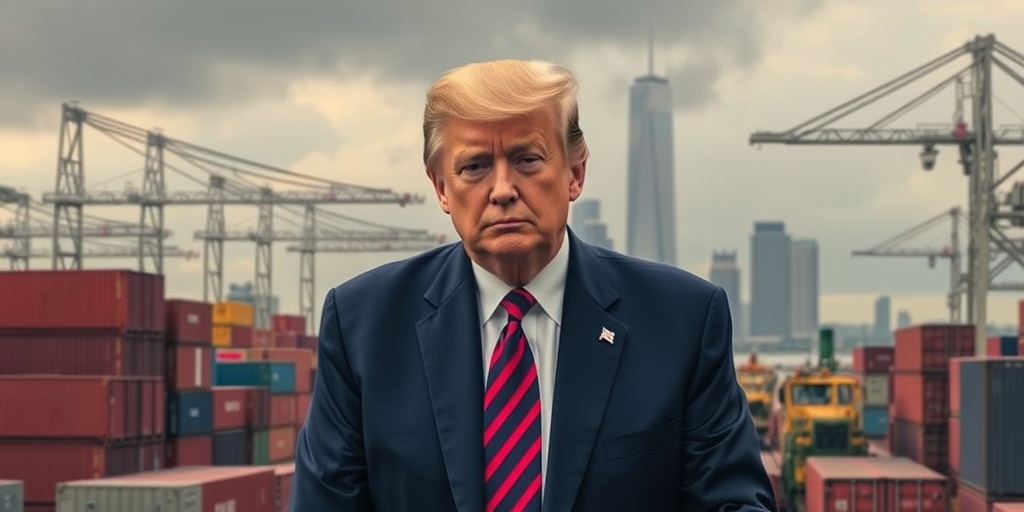
Market Turmoil Signals Economic Uncertainty Amid Trade War
In recent days, the global stock markets have experienced a significant downturn following President Trump’s announcement of sweeping tariffs, igniting fears of a global trade war. Within just two days, the S&P 500 index plummeted by more than 10 percent, reflecting the anxiety among investors regarding the long-term implications of these trade policies. This decline was accompanied by wild fluctuations on Monday, as news of additional tariffs and speculations about their potential delays continued to stir market jitters. The repercussions of this financial upheaval have not been confined to American markets; major stock indexes in both Asia and Europe have also experienced sharp declines.
Historically, financial experts have advised caution when interpreting stock market movements as indicators of the broader economy. Share prices can fluctuate for various reasons, including technological advancements, shifts in consumer preferences, or changes in tax and interest rate policies. However, during turbulent times like these, the markets often relay a clearer economic message. Currently, it seems that investors largely believe that the tariffs imposed by the United States and the consequent retaliatory actions from trading partners will likely lead to escalating prices, diminishing economic growth, and potentially usher in a global recession.
The implications of declining stock prices extend beyond mere anxiety about an impending recession; they could also catalyze one as consumer spending contracts in response to shrinking portfolio values. Ryan Sweet, the chief U.S. economist at Oxford Economics, articulated that while a few days of market turmoil may not lead to significant consequences, a sustained decline over weeks or months could escalate economic costs rapidly.
Tariffs are expected to critically impact low- to moderate-income consumers, who generally allocate a larger portion of their spending on goods that are likely to be subject to new duties. With limited savings, these households may struggle under the weight of rising costs. Conversely, the affluent, who hold a disproportionate share of investments and stocks, may also become more hesitant to spend as market values decline. Sweet shared insight into a friend’s decision to delay a kitchen renovation after losing significant investment capital over the past few days, which encapsulates the immediate impact of declining market values on consumer behavior.
It’s also important to note that many Americans own stocks, either directly or through retirement accounts, a trend that has intensified following the meme-stock investing craze during the pandemic. This increase in market participation offers a larger segment of the population a stake in stock market fluctuations, thereby amplifying the potential economic fallout of even minor declines.
According to Mr. Sweet, the “wealth effect"—where spending patterns increase or decrease in response to stock market changes—has quadrupled compared to pre-pandemic levels. This newfound sensitivity renders the economy more susceptible to downturns in the market. "It’s hundreds of billions of dollars in potentially lost spending," he emphasized, suggesting that a drastic reduction in consumer spending of this scale would have cascading effects throughout the $30 trillion U.S. economy.
As businesses navigate the uncertainty surrounding tariffs and economic policy, they have displayed growing caution regarding hiring and investment levels. While layoffs have remained relatively stable thus far, this may change quickly if consumer sales begin to falter. Morgan Stanley’s chief U.S. economist, Michael Gapen, remarked that diminished demand from higher-income households could prompt businesses to reconsider their staffing, with layoffs disproportionately affecting lower- and moderate-income workers.
The recent dramatic shifts in the stock market underscore rising fears about the economic outlook. Industries such as technology and automotive, which are intricately linked to global supply chains, have borne the brunt of investor pessimism. However, losses have not been confined to these sectors; companies across hospitality and various service industries catering to consumers with discretionary income have also seen their stock values decline.
Oil prices, mirroring this trend, have plunged significantly, signaling investor apprehension regarding reduced economic activity globally, affecting everything from travel to infrastructure development. Given that many other countries depend heavily on global trade, they may face even tougher economic challenges than the U.S.
While a cohort of investors still holds out hope that President Trump will reconsider his tariff strategy before it precipitates widespread layoffs or business failures, the uncertainty looms large. Even if tariff plans are reversed, skepticism persists around whether the economic damage can be fully mitigated. Business leaders, grappling with many uncertainties, may be inclined to adopt a more conservative approach toward hiring and investment, retreating "into the bunker," as Sweet put it. Such environments may lead to reduced spending and muted economic growth, paving the way for a prolonged period of economic instability.
In conclusion, as financial markets continue to react to policy decisions, it is apparent that this volatility is not merely a short-term inconvenience but presents complex challenges with potential long-term ramifications for the U.S. and global economy.
Stay Informed With the Latest & Most Important News
Previous Post
Next Post
-
 01New technology breakthrough has everyone talking right now
01New technology breakthrough has everyone talking right now -
 02Unbelievable life hack everyone needs to try today
02Unbelievable life hack everyone needs to try today -
 03Fascinating discovery found buried deep beneath the ocean
03Fascinating discovery found buried deep beneath the ocean -
 04Man invents genius device that solves everyday problems
04Man invents genius device that solves everyday problems -
 05Shocking discovery that changes what we know forever
05Shocking discovery that changes what we know forever -
 06Internet goes wild over celebrity’s unexpected fashion choice
06Internet goes wild over celebrity’s unexpected fashion choice -
 07Rare animal sighting stuns scientists and wildlife lovers
07Rare animal sighting stuns scientists and wildlife lovers













